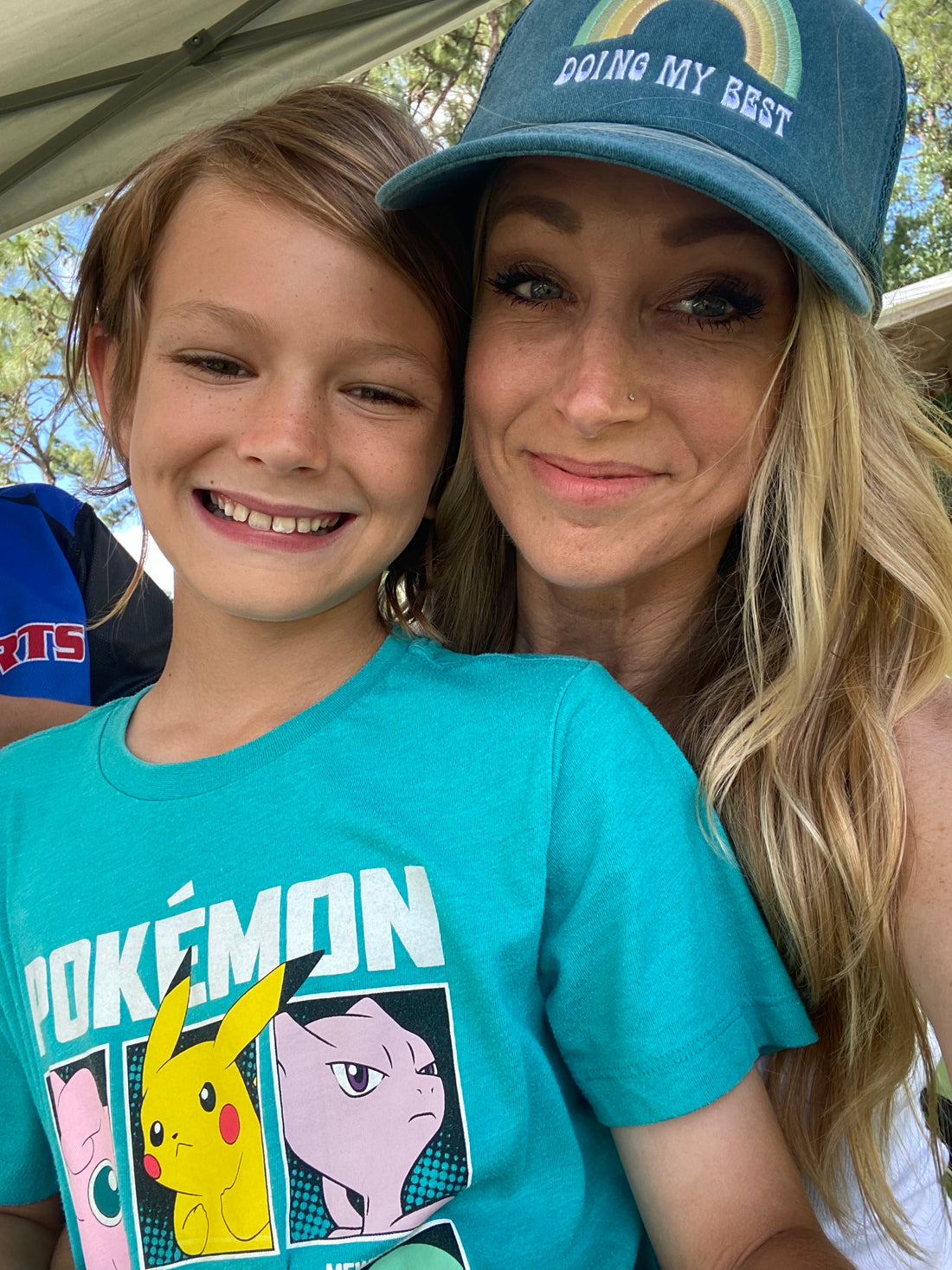
We are all doing our best.
Monica JackmanIn 2020, when we were all scrambling and trying to get by during the biggest period of uncertainty many of us have ever experienced, there came a point where I said I wanted to make shirts for everyone that said "I am doing my best". At that time, the whole world was collectively trying to cope, while isolated and disconnected in some way, scared and unsure about what was coming next. In the school setting (and I am sure in all settings to some degree), we were building the plane as we were flying. No one actually had time to make any shirts, but it became a great mantra.
So a few weeks ago, when I saw my sister Audrey wearing a hat that said, "Doing my best", it filled me with joy. Because life would be so much better if we could realize that we are all, at any point in time, really just doing the best we can given our circumstances and our abilities in that moment. We have the same basic human needs- to be safe, to be connected, to have purpose, to feel useful, to be accepted for who we are, to explore and discover, to be nourished, to heal, to rest, to love. We all suffer, because that is a huge part of our human-ness too. And yet, we hold ourselves and others to such high standards for doing.
Dr. Russ Harris, a teacher of Acceptance and Commitment Therapy (ACT) talks about the concept of a reality gap, which is the space between what we want from life, and what life is actually giving us. ACT helps people learn how to live in that space, how to co-exist with the feelings that arise when we realize that there is a discrepancy between our ideal reality and our actual reality, whether it be from loss, pain, injustice, disability, illness, uncertainty, failure, addiction, depression, misfortune....
I think it is the same for how we view the actions of ourselves and others. We look at the choices and behaviors of other people, we look at the metrics we have for our own accomplishments, and we, using our brains that are neurologically hardwired to judge, make assumptions about the effort that others are putting forth. I love this page in the wonderful book, The Boy, The Mole, The Fox and the Horse, by Charlie Mackesy:

We so often have a reality gap between what we think ourselves or others should be doing and what they are actually able to do in that moment. We even make judgments about why, and it is often due to something called correspondence bias, also known as fundamental attribution error. Correspondence bias is when we attribute someone's actions to their character rather than the circumstances that are contributing to or prompting the action. So, for example, if a person behind us starts honking as a light turns green and then races past us and cuts us off, we may feel like the person is reckless and impatient (correspondence bias). However, it is possible that the person is frantically racing to see a loved one in the emergency room (circumstances). We may look at a person who is giving us an angry expression and tone and think that the person is rude or unkind (correspondence bias), when in reality, the person may be in extreme physical or emotional pain due to illness or loss that they cannot bear in the moment, and they are having difficulty coping with their pain (circumstances).
I see this all the time while working with children who have learning differences, with children who are neurodiverse, who have a trauma history, who have health challenges, who do not know how to fit in. They struggle every day, all day, as their reality gap can be huge; the world wasn't designed for their own unique beautiful way of doing and being. And what they do is so often attributed to their character traits- I have heard things like, they made a bad choice, they don't want to, they are disrespectful, they are unmotivated, they won't focus, they refuse to follow the rules, they are lazy. People may not see that a child is so hypervigilant because of trauma, sensory processing differences, and/or difficulty filtering ambient information that they they react to everything going on inside them and around them to a point of exhaustion that makes it almost impossible to feel safe enough to meet the unrelenting cascade of academic and social expectations that rains down in a classroom setting. People may not see a child who has delayed processing, poor working memory, or language impairment that makes it so hard for them to understand and retain instructions in the expected window of time...to remember the rules for behavior and simultaneously remember the steps for writing a lowercase b or subtracting double digit numbers. We, as humans are so quick to assume that others are not doing their best because we cannot see their frantic paddling underneath. And, to complicate matters even further, as my brother Dan reminded me with this lovely print, someone's "best" can look different every day.

My point is, that if we could only look at every person and take a leap of faith that they are, indeed, doing their best, we would be much kinder to each other. We would be gentler, more open, more forgiving, more accepting. The world would be better. We can still listen to our instincts when someone's actions may put us in danger, we can still do our best to help when we see that someone is struggling. But we must remember that at any given moment, we are all just doing our best.
